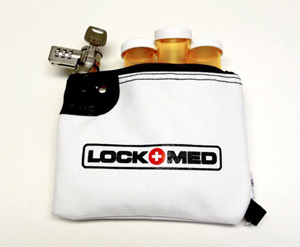Medical Cannabis will be regulated by July 1, 2016 On April 2015, Gov. Inslee signed a new medical cannabis law which finally regulated medical cannabis in Washington State. Since 1998, medical cannabis and the medical cannabis industry has been unregulated. This meant no governmental agency was checking to see if the product was safe or contained pesticides or if the business paid its taxes. Media described our situation as the "wild west." Surprisingly dispensaries in Washington State have been illegal under both State and Federal laws - and if licensed by the state will only become legal on July 1, 2016. The medical cannabis industry - particularly here in compassionate and enterprising Seattle - has been allowed to exist because of concern about patient access to safe medicine.
Green Buddha wholeheartedly supports I502 and embraces regulation. But we also believe that the transition will be difficult particularly for sincere patients - cancer patients, those with neurological disorders, those on disability, and those on limited incomes. We believe the new medical cannabis law was heavily lobbied and crafted by prominent I502 licensees for their success. Regulation is good - we need pesticides testing and better assurances as to safety. But we also know that part of the 'miracle' of medical cannabis is cost and we fear that costs of being a patient will only increase.
The American health care system's ability to delivery cost-effective health care is absymal; we've got the most expensive among industrial nations - and we're not in the top twenty health care systems. The current 'Green Ru$h' mentality and the state's desire for taxes adds to the problem. Green Buddha remains very concerned as to the potential effects of the new law. Additionally we see the state closing medical dispensaries even as the state has not yet opened the "alloted" 334 stores- which only drives patients underground as they attempt to locate their medicine.
RegistryGreen Buddha's greatest concerns with the new law lie with the voluntary registry. The registry is designed to be accessible by law enforcement. Patients on the registry could also have their grows examined for verfication of compliance. While each patient must weigh an individual cost-benefit analysis, we believe the loss of privacy rights and the implications of being forced to admit violation of federal laws - at the very moment when any adult in our state can utilize cannabis - is very concerning and not worthy. The Washington ACLU testified against the registry and noted it agrecious nature. The ACLU also noted the state could be sued for the registry and wanted the costs of such suits to be considered in keeping the registry. Several prominent cannabis lawyers are also filing suits against the state concerning the violation of privacy (HIPPA) laws although it remains to be seen whether these suits are successful. Those chosing to be on the registry get the benefits of being allowed to grow more plants, have more medicinal products in one's home.
Authorization The new authorization form is available now and is in effect.
Green Buddha's major concern with the new authorization asks the doctors to note the cannabis plant amounts which is a step closer to looking like they are prescribing cannabis - which is federally illegal. In general, doctors also have a phobia of being connected to cannabis plants. Green Buddha believes that this new form will further hinder the patient-doctor relationship.
Newly Regulated Medical Cannabis in Washington State by July 1, 2016
- Better Testing
- Medical Cannabis
- Costs
- Registry
Perhaps one of the benefits of regulating medical cannabis is pesticides testing, minimally for the DOH determined "medical cannabis."
Currently most medical cannabis and 100% of the state's regulated I502 cannabis has been grown with pesticides. None of the final consumable cannabis products have ever been verified as not containing pesticidal residues.
During our time as a storefront, Green Buddha was the only dispensary to do full pesticides testing and we have waited five years to see the state initiate such. We're still waiting.


